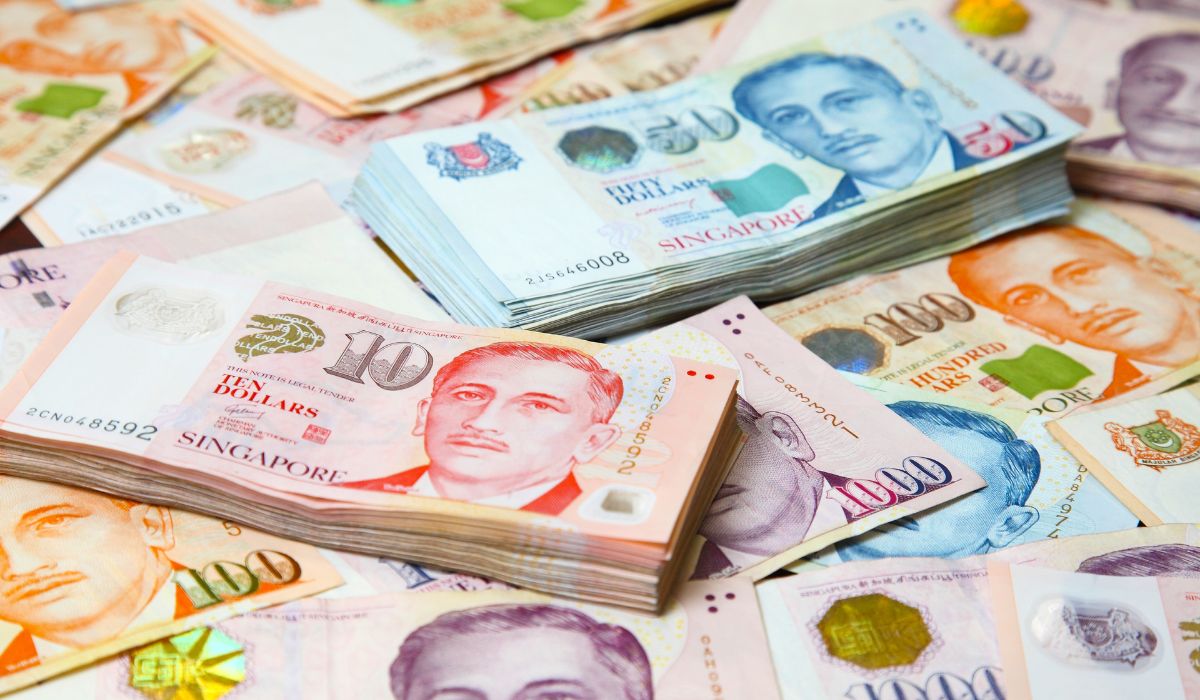What Are T-bills And How Can You Buy Them?
If you’re wise with your money, you probably know that it’s not recommended to keep excess cash in your savings bank account, especially if you’re not earning much interest. This is exactly why you should find out how to buy T bills Singapore.
In this guide, we’ll let you in on everything you need to know about buy T bills, and how this government bond can help you ensure your money stays safe.
Here at OMY Singapore, you will discover the following:
What Are T-bills In Singapore?
Before you learn how to buy T-bills in Singapore, you first need to know what it is. For those who want to earn a high return on their excess money, investing in SG T-bills that are issued by the government is an incredible idea.
These debt instruments do wonders to help individuals enjoy a high return based on the market environment.
Treasury bills are known as Singapore Government Securities or SGS, which are considered suitable investments since they are backed by the government. Singapore has a high credit rating according to international credit rating agencies, which means that the country has a low risk of defaulting.
There are four types of SGS: SHS bonds, Singapore Savings Bonds, Cash Management Treasury Bills, and Treasury bills or T-bills.
These are short-term bills that are offered in a 6-month or 1-year tenor. Another term for T-bills is “zero coupon bonds” since they don’t have an interest during the life of the bond. Instead, T-bills are sold at a discount to their face value. This means that investors will get back its full value upon the maturity of the T-bills.
For instance, if you learn how to buy Singapore treasury bills and were successful in getting S$5,000 worth of 6-month T-bills at 2% per annum, you only need to pay S$4,900. Once your T-bills mature, you will receive a S$5,000 lump sum, which includes S$100 interest.
Why do people clamor over how to buy Singapore T bills?
The government issues T-bills and SGS bonds mostly to build a liquid market and provide a robust government yield curve, which can serve as a benchmark for the corporate debt market.
Aside from that, it can also help grow a very active secondary market that works both for cash transactions and derivatives. This enables good risk management.
Finally, T-bills were launched to encourage investors and issuers in Singapore and all over the world to participate in the Singapore bond market.
In short, learning how to buy T bills Singapore is a way for individuals to lend money to the Singapore government so it can develop local debt markets.
How Does T-bill Work In Singapore?
On each issue, the T-bill interest rate changes and this rate is only determined during the auction.
As an example, we’ll take a look at the latest 6-month T-bill issued by MAS on 4 January 2024, which has a cut-off yield of 3.74% per annum. In comparison, it has a lower cut-off yield than the t-bill issues on 5 January of the previous year which was at 4.2% per annum.
Here’s more information about the T-bill issued on 4 January 2024.
| Announcement date | 27 December 2023 |
| Auction date | 4 January 2024 |
| Issue date | 9 January 2024 |
| Maturity date | 9 July 2024 |
| Total amount allotted | S$6.1 billion |
| Cut-off yield (T-bill interest rate) | 3.74% per annum |
What Are Competitive And Non-competitive Bids?
When understanding how to buy T bills Singapore, the T-bill competitive bid needs investors to specify the price that they’re willing to pay for the T-bills or SGS bonds. This should be expressed in terms of percentage yield up to two decimal places. A lower yield is equal to a more competitive bid.
Meanwhile, a non-competitive T-bill Singapore bid is one where investors don’t need to specify the price, they are willing to buy. Instead, they will be allotted SGS T-bills at a uniform yield based on the results of the tenders. This can be a great option for retail investors who still can’t get the hang of competitive bids.
Keep in mind that all non-competitive bids will be prioritised before the balance is awarded to people who have submitted competitive bids. Therefore, your chance of getting a T-bill will be higher if you secure your allotment through a non-competitive bid.
MAS allocates up to 40% of the total issuance of T-bills to non-competitive bids. Because of this, individuals who applied for non-competitive bids may not get the full allocation since only around S$1.92 billion in T-bills were released while the bids that were submitted totaled approximately S$2.4 billion. Therefore, the ratio of non-competitive bid allotment was only 77.78%.
So, if you made a non-competitive bid to buy T bills, you may only get half the amount you bid for.
Meanwhile, MAS allocates the remaining S$2.88 billion worth of issuance to competitive bids until the issuance has been fully allocated. The 3.9% per annum cut-off yield is derived from this.
When it comes to how to buy Singapore t bills, you never really know what the Singapore treasury bills interest rate will be after auctions are announced.
Thankfully, there’s a way you can estimate rates by looking at data from the MAS website.
Can You Withdraw T-Bills Early?
Part of learning how to buy T bills Singapore is also finding out how you can withdraw it.
If you buy T bills, you are not allowed to redeem them early. However, it’s possible to sell it on the secondary market at the main branch of UOB, OCBC, or DBS.
Keep in mind that its price may rise and fall before its maturity so if its trading volume is low, it can become illiquid. The best thing to remember when learning how to buy treasury bills is to ensure you’re okay with not touching your money for the entire duration of your T-Bills tenure.
How To Buy T-bills In Singapore?
If you want to learn how to buy T bills Singapore, it’s important to note its issuance schedule. Six-month T-bills are issued every two weeks, while one-year T-bills are issued every three months. For more information, take a look at the Auctions and Issuance Calendar.
You can buy T bills in Singapore using your supplementary retirement scheme funds, your CPFIS investment scheme funds, or cash.
SRS Application
To buy T bills using SRS, you need an SRS account with DBS/POSB, UOB, or OCBC. Then, simply apply for T-bills through your operator’s online banking portal. Once your transaction is successful, it will be reflected in your statement.
CPFIS Application
If you want to apply for Singapore Government Treasury Bills using your CPFIS-OA investments, you need a CPF investment account with DBS/POSB, UOB, or OCBC. Then, submit an application at any CPFIS bond dealer branch (in DBS/POSB, UOB, or OCBC). Once successful, the transaction will be reflected in your statement.
The eligibility requirements to invest under CPFIS include:
- Must be above 18 years old
- Must not be an undischarged bankrupt
- Must have more than S$20,000 in your OA; and/or
- Must have more than S$40,000 in your SA; and
- Must have completed the CPFIS Self-Awareness Questionnaire or SAQ
Cash
This is perhaps the easiest and most popular way to on how to buy treasury bills. To do this, open a bank account with DBS/POSB, UOB, or OCBC, as well as an individual Central Depository or CDP account with direct crediting services activated to allow your coupon and principal payments to be credited automatically to your bank account.
Once you’ve checked off these requirements, you just need to apply for T-bills through your bank’s ATM or internet banking portal. Finally, just wait for the transaction to be reflected on your statement.
How Do T-Bills Compare To SGS Bonds And Savings Bonds?
Now that you know how to buy T bills Singapore, here’s a look at how Singapore treasury bills compare to SGs bonds and Savings bonds.
| T-Bills | SGS Bonds | Savings Bonds | |
|---|---|---|---|
| Tenor | 6 months 1 year | 2 5, 10, 15, 20, 30, or 50 years | Up to 10 years |
| Sale method | T-bill competitive bid T-bill non-competitive bid | Quantity ceiling format | Auction (competitive or non-competitive bid) Syndication |
| Minimum investment | S$1,000, and in multiples of S$1,000 | S$1,000, and in multiples of S$1,000 | S$500, and in multiples of S$500 |
| Maximum investment | None | Up to allotment limit of auction | S$200,000 overall |
| Can you buy with your CPF? | Yes | Yes for auction, no for syndication, | Yes for SRS, no for SPF |
| Interest payment | Upon maturity | Every 6 months | Every 6 months |
| Secondary market trading | DBS/POSB, UOB, and OCBC | DBS/POSB, UOB, and OCBC SGX through a broke | None |
How to Buy US Treasury Bonds in Singapore
Investing in US Treasury Bonds from Singapore is a viable option for diversifying your investment portfolio internationally. If you’re curious how to buy US treasury bonds in Singapore, here’s how to do it.
Learn about US Treasury Bonds
Before you learn how to buy US treasury bonds in Singapore, understand what US Treasury Bonds are. They are long-term government debt securities issued by the U.S. Department of the Treasury. They have longer maturities ranging from 10 to 30 years and offer periodic interest payments.
Choose a Brokerage Platform
You need to select a brokerage platform that allows access to the U.S. bond market. Look for platforms that are reputable and offer international trading options. Make sure to compare their fees, ease of use, and the range of investment options they provide.
Open a Brokerage Account
Once you’ve chosen a platform, open a brokerage account. This step in how to buy US treasury bonds in Singapore involves providing personal information and completing a verification process. Ensure that your account has the capability to trade in international markets, specifically the U.S. market.
Fund Your Account
After setting up your account, fund it with sufficient capital. Most brokerage platforms in Singapore allow you to transfer funds from your local bank account.
Select Bonds
Research the various US Treasury Bonds available. Pay attention to their maturity dates, interest rates, and credit ratings. This will help you understand the risks and returns associated with each bond.
Purchase the Bonds
Go to the bonds section on your brokerage platform, select the US Treasury Bonds you wish to purchase, and follow the prompts to complete your transaction. Some platforms may also offer the option to participate in Treasury auctions, where you can buy bonds directly from the U.S. government.
Monitor Your Investment
After purchasing, monitor your bonds periodically. Keep track of interest payments and any potential market changes that might affect the value of your bonds.
Understand Tax Implications
One of the most important steps in learning how to buy US treasury bonds in Singapore is to be aware of any tax obligations that may arise from your investment. As a Singapore resident, you might be subject to withholding taxes on the interest earned from US Treasury Bonds.
A Word From OMY
T-bills are truly one of the best short-term investment options for anyone who wants to diversify their portfolio. When you learn how to buy T bills Singapore, you can receive a fixed Singapore treasury bills interest rate when it matures.
That said, do not expect T-bills to generate the best returns to help you combat the effects of long-term inflation. The major thing to remember when it comes how to buy Singapore t bills is to not sell them before their maturity, or else you may lose money depending on the market condition.







